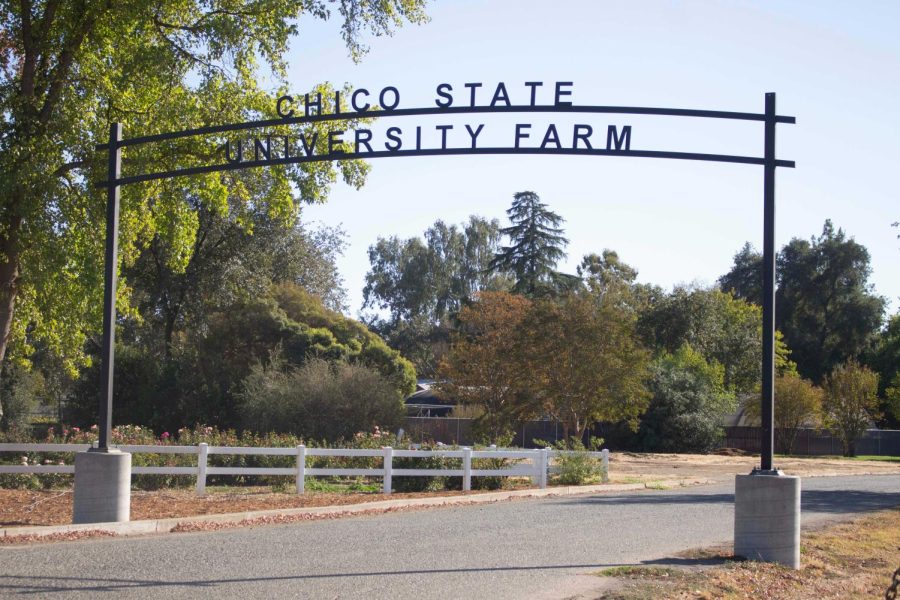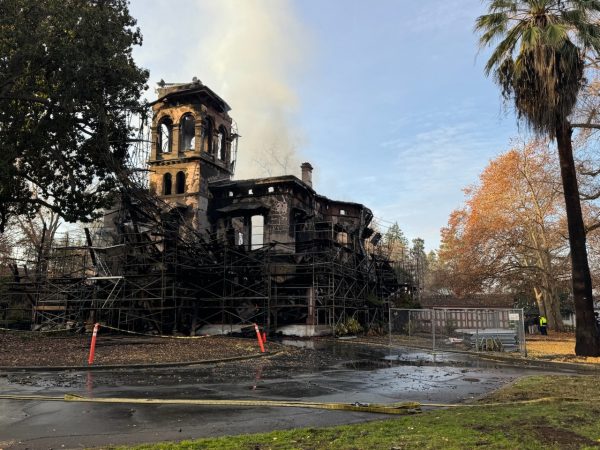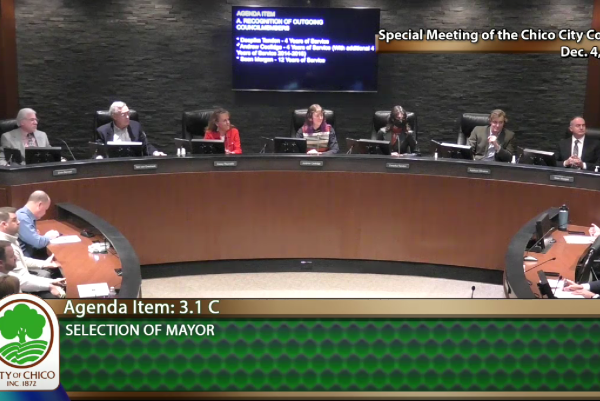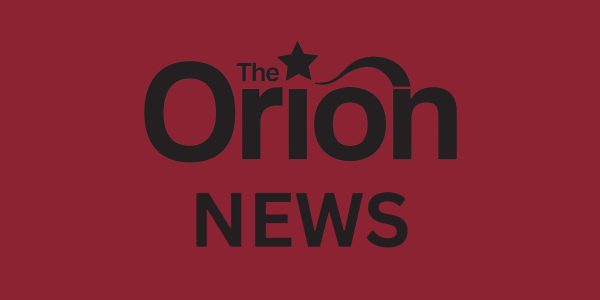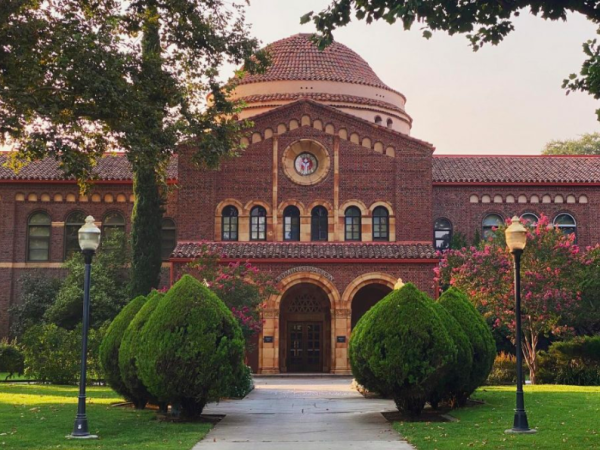Cows, pigs and sheep … Oh, my! University Farm guided tour thrills
The entrance of Chico State’s University Farm, taken on Oct 15. 2021.
Chico State’s University Farm is offering free tractor-guided tours every third Friday of each month at 2 p.m.
The College of Agriculture provides free roundtrip shuttle rides from campus to the University Farm four days a week. The shuttle picks people up on the corner of West Second and Ivy streets on the side next to the parking structure.
Tour goers meet in the tour parking lot next to the Chico State University Farm Pavilion, and then hop onto a trailer being hauled by a vintage John Deere tractor. The tour guide gives a run down of the animals and crops on the farm as the tractor slowly hauls by the livestock units.
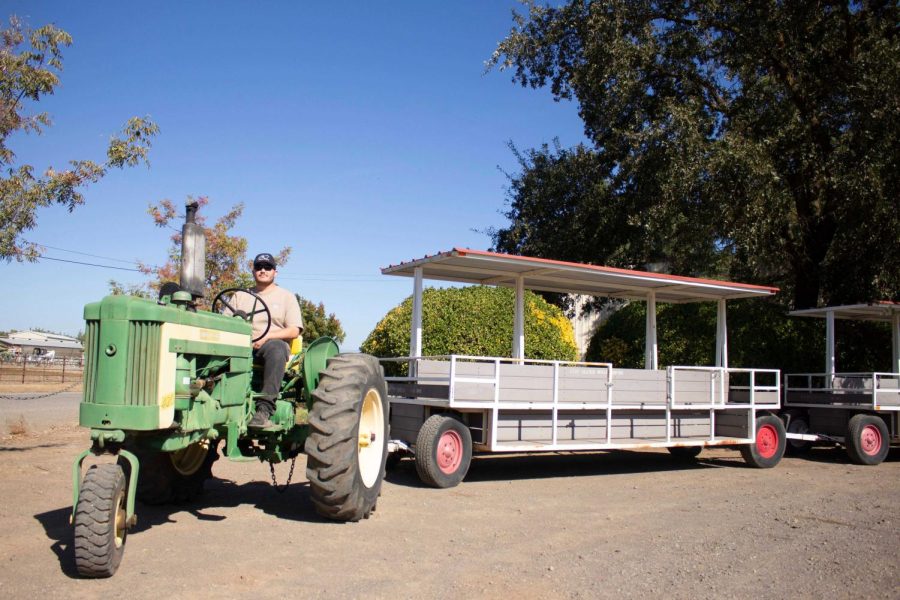
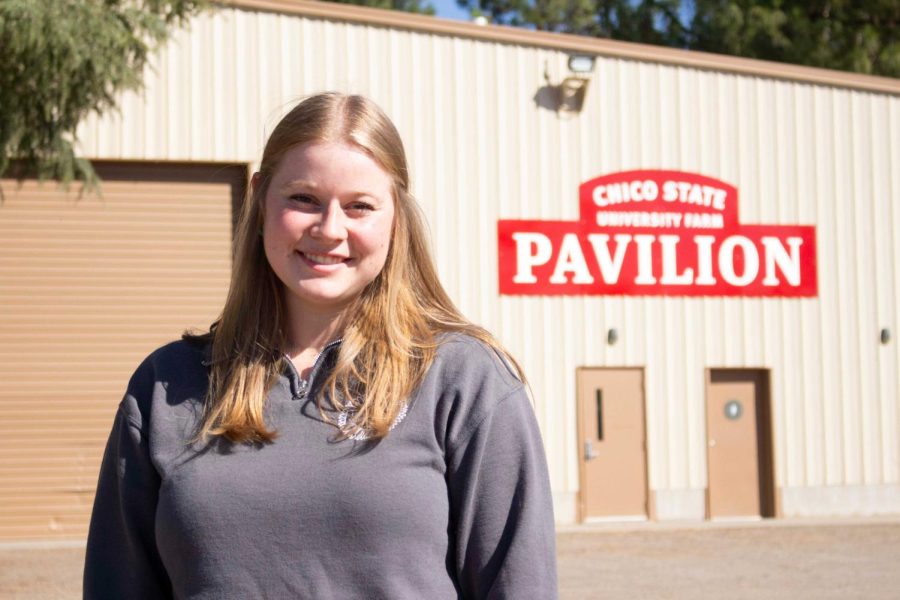
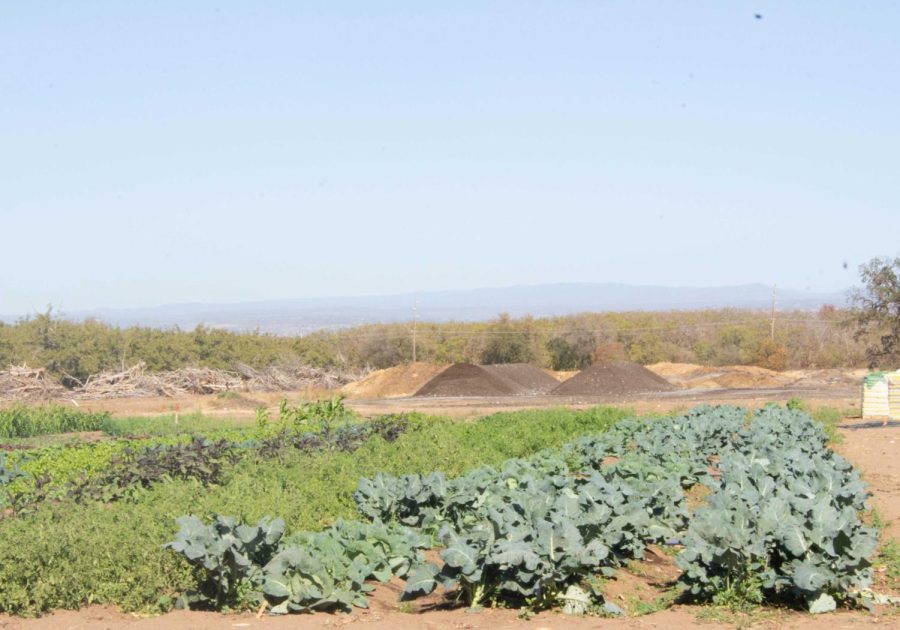
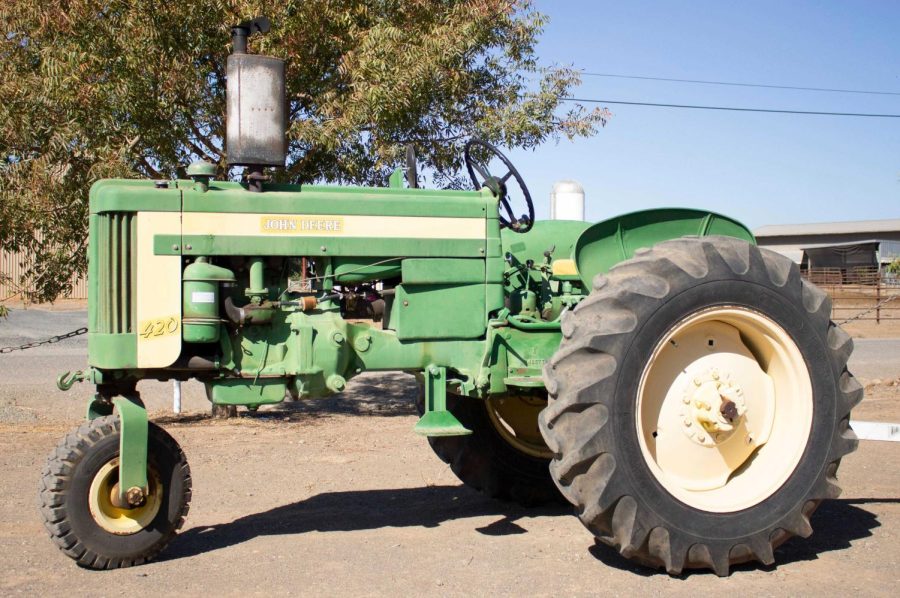
Amanda King, a third year and agricultural business major at Chico State with a minor in animal science, leads tours.
“I really like the community aspect we have at the farm,” King said. “It’s really awesome to see how our communication spreads and they’re able to communicate with their friends about what they learned and what they thought was interesting.”
The livestock can be seen lounging or grazing on feed. Each animal has their own quirky trait: the swine unit is full of grunting pigs and the beef unit has cows bunched up cuddling in a group. The animals curiously stare at the tour goers as the tractor stops for the guide to speak.
The Organic Vegetable Project is an agriculture class that allows students to farm a small plot for the semester.
The farm grows products like chestnuts that typically aren’t available in the region to see if they will do well. It then shares that information with farmers.
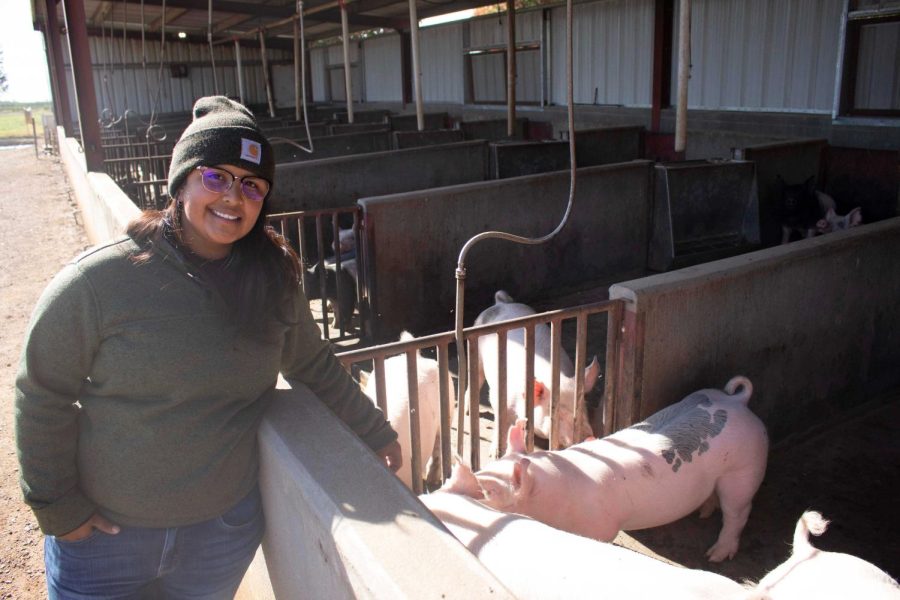
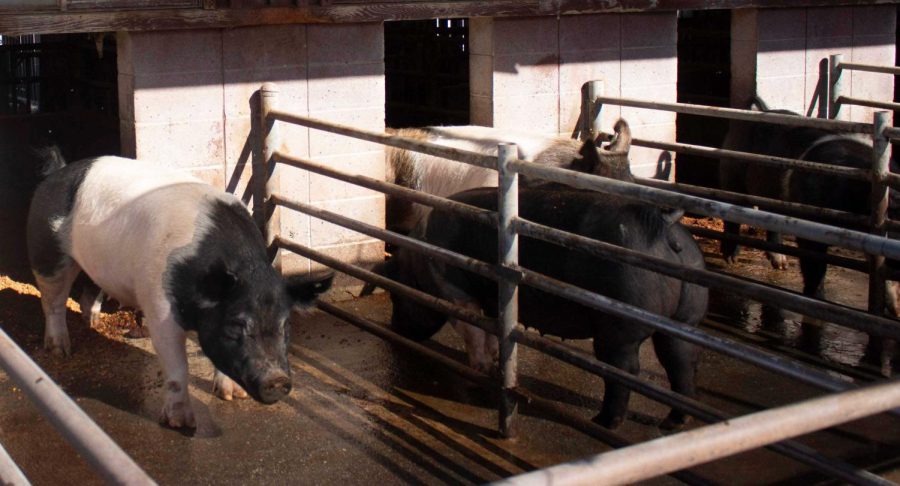
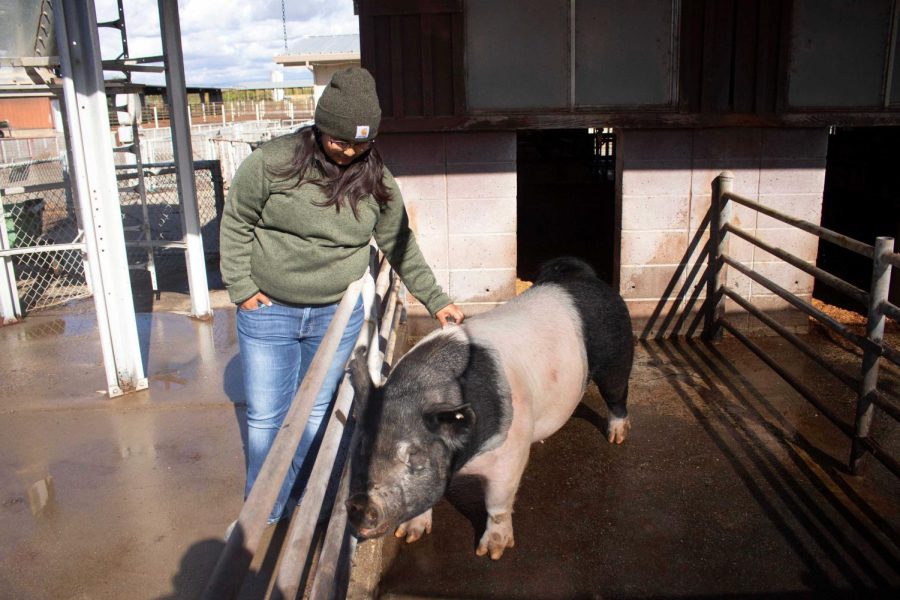
Annelise Perez, agriculture major and swine unit worker, said the Swine Unit raises pigs that are show influenced. A gilt is a young female pig and a sow is a female that’s had a litter already. The unit has pregnant gilts and sows all throughout the year since they work on a six-week schedule; every six weeks they breed.
“All of the animals on the farm are bred by artificial insemination.” Perez said. “Only in rare cases, do we allow natural breeding.”
Artificial insemination allows the University Farm to breed animals with high quality traits and minor genetic health defects. Perez said it also protects the animals from hurting each other in the process of mating.
The Lamb Unit has two flocks of sheep used for research and breeding purposes.
“For lambs, all of the young ones are called lambs regardless of their gender,” King said. “For the males, they’re called bucks or rams. The castrated males are called wether. For the females, they’re always called ewe.”
The Beef Unit grazes cattle every winter on a 240 acre plot of land north of Chico that’s owned by the farm, so they can gain weight for the cold.
King went on to talk about the different types of terminology used when it comes to cows.
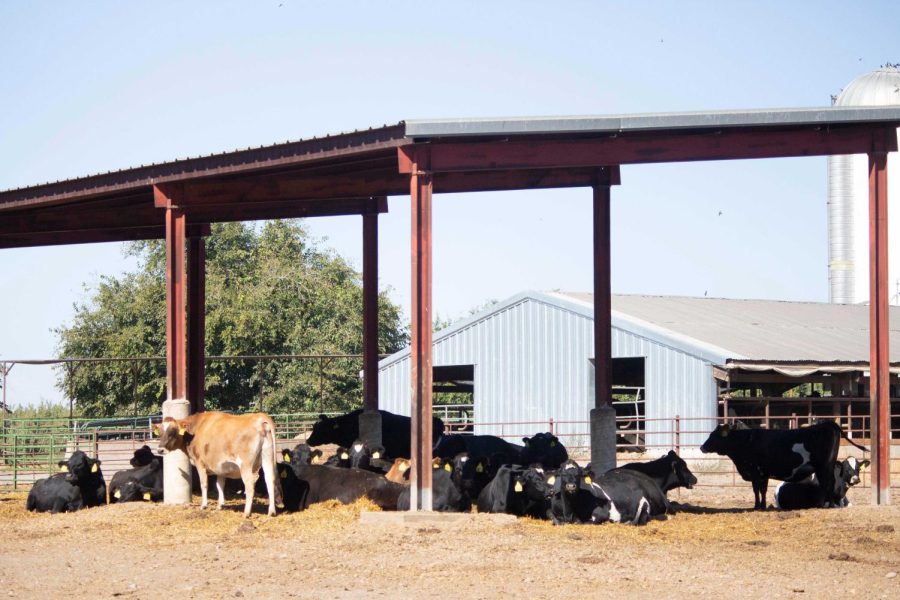
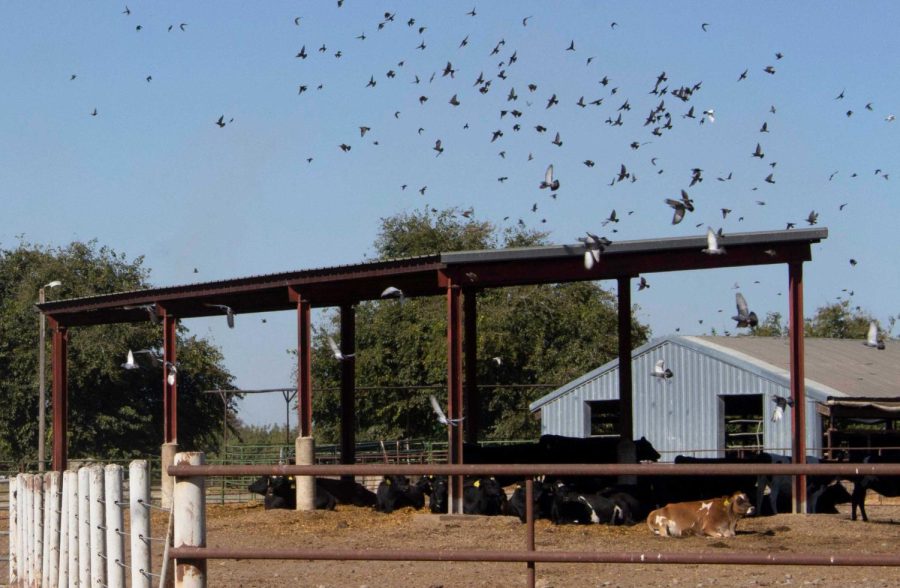
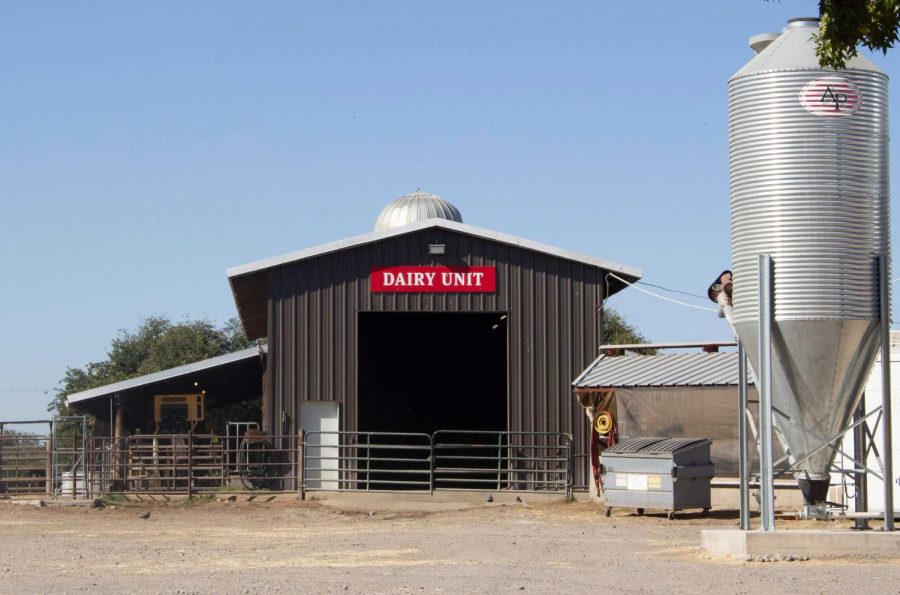
“If it’s a female and they haven’t had any offspring, it’s a heifer,” King said. “If it’s a baby, regardless of the gender, it would be a calf. For the males, they’re always called bulls regardless of their age. The ones that are castrated are called steers.”
The farm is located six miles south of campus and sits on 800 acres. Students can make a quick 10 minute drive to get fresh produce and quality meat in between classes.
It is home to 12 students. They live in apartments within their livestock units and trailers on the farm, so they can tend to the animals around the clock. There’s three apartments and seven trailers. The students apply for housing through the College of Agriculture, not University Housing.
The Meats Lab is one of the farm’s notable features. The Meats Lab is an onsite butcher shop that sells directly to the Butte County community.
Warren Dayton, a Meats Lab student, said it’s open to the public Thursdays and Fridays from 8 a.m. to 5 p.m. offering cuts of beef, pork, lamb, plus sausages and smoked products.
“We are always excited to meet the needs of our customers,” Dayton said. “Come on out to the Meats Lab to try out one of our 20 plus sausage varieties and support the College of Agriculture.”
The tours are offered throughout the year except for in January, June and July. Those who miss the shuttle must find their own way back to campus. Contact (530)-898-5844 for more information.
Alex Martin and Melvin Bui can be reached at [email protected] or @alexmartinjour or @melvinbuii on Twitter.



